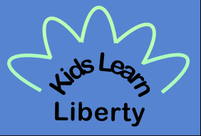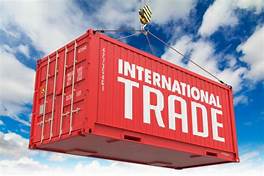Concepts for Kids1. With free markets, people are rewarded for inventing new goods and services or by making them cost less. These rewards encourage more people to come up with new ideas.
Words for Kids to Know producer - a person or group of people offering products or services consumer - someone who buys a good or service 
2. Free markets create competition. This means producers must convince consumers to buy what they are selling. 3. Consumers cannot afford everything they want so they must choose what and how much to buy. Competition is good for consumers because it gives them more choices and lower prices. 4. When consumers have lots of choices of what to buy and how much to pay, they are able to improve their lives with more and different foods, tools, and other useful things. 5. With free markets, prosperity increases. 6. Producers are encouraged to discover what they can grow, manufacture or do that consumers want. 7. Trading provides a way to become friends with people who might otherwise be enemies. Family ActivityRelated Topics |
Literature Connection
One Hen
by Kate Smith Milway This wonderful tale describes how a loan to an African boy, which he uses to buy a chicken, leads to prosperity for his community. The story details how hard work, budgeting, saving, investing, and using educational opportunities helps businesses grow, increases employment, and creates wealth. The story would appeal to middle elementary age students and older, the illustrations to everyone. Oxcart Man by Donald Hall An early American farm family grows and produces to support itself and earn money. This story provides a basis for discussing how people specialize in their work. Night Markets: Bringing Food to a City by Joshua Horwitz This book clearly answers a question: how do the millions of residents of New York City eat when the city has almost no agriculture? It then describes the wholesalers that supply food for NYC, where it all comes from, and how it gets there. Though dated, out of print, and perhaps too graphic for some children (text and photos detai how a slaughtered calf is turned into veal cutlets), this is still a great book for helping children grasp the vastness of world trade. Read an online photocopy of the book. Markets Around the World (Time for Kids Nonfiction Readers) by Casey Null Petersen Learn about outdoor markets in Asia, Europe, Latin America, the Middle East, Africa, and the United States. Colorful photographs and charts, information about what is for sale, a world map and a glossary combine to make this a great demonstration of how people buy and sell all over the world. I, Pencil by Leonard E. Read The message of this story is invaluable: many different jobs are done to produce something simple. Though it was written for children, the format and words may be hard for them to understand. Download the original. This animated version uses some big words but the visuals are wonderful. The Tuttle Twins and the Miraculous Pencil by Connor Boyack In this retelling of Leonard Read's famous I, Pencil story, the Tuttle twins go on a field trip to a pencil factory. With diagrams and illustrations, readers can grasp the huge cast of workers from all over the world who cooperate to produce this everyday object. An Orange in January by Diana Hutts Aston Using charming illustrations, this is the story of an orange from pollination through consumption. In the process, the book demonstrates how workers in a variety of occupations make it possible for a child in a cold climate to eat a fresh orange in the middle of winter. Visions of Beauty: The Story of Sarah Breedlove Walker by Kathryn Lasky The first free-born child of her parents, Sarah Breedlove Walker grew up poor and worked hard to support herself. Though she dreamed of being confidant and proud, she labored as a farm worker, laundress, and cook. Seeing the need African American women had for healthful hair care products, Sarah developed her own. With incredible business acumen, courage, and ambition, Sarah built a beauty product empire. She became wealthy, philanthropic, influential, and helped her many employees become prosperous. Saturday Sanchocho by Leyla Torres For Saturday dinner, Maria Lili's grandparents always prepare sanchocho, a savory stew made of chicken, vegetables, and spices. On a Saturday when they have a dozen eggs but no cash, Maria Lili and her grandmother head to the market to barter for sanchocho ingredients. Their experience shows the value of trade and the challenges of barter. |
Proudly powered by Weebly


